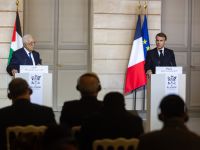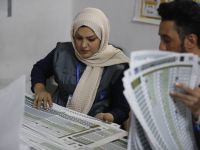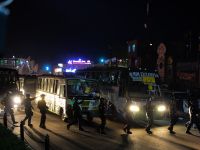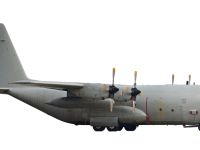Hobbling under a decade-old embargo but flush with high oil revenues, Iraq has attracted a record turnout for the Baghdad international trade fair which opens on Wednesday.
A total of 1,554 companies from 45 countries are to take part in the fair, Commerce Minister Mohammad Mehdi Saleh told reporters, as Iraq battles to erode the UN sanctions imposed as punishment for its 1990 invasion of Kuwait.
He said the participation for the 33rd edition of the annual fair was a record for the era of sanctions. The figure was up from 960 companies last year, but still down from the 55 countries which took part before the embargo.
Nine countries will be making their debut this year, including Belgium, Finland and Germany.
Saleh said 16 countries would be represented by commerce, economy or other ministers at the 10-day fair, such as Turkey's Minister of State Tunca Toskay who flew in to Baghdad airport on Monday.
"We aim to develop our economic ties with Iraq while adhering to international rules and obligations," said the Turkish minister of state for foreign trade, referring to the sanctions which have crippled Iraq's economy.
Jordanian Prime Minister Ali Abu Ragheb is also to fly in on Wednesday, in the first trip of its kind by an Arab head of government in a decade, while Tunisia is sending its commerce minister by air.
A total of 35 foreign planes have landed since the August 17 reopening of Baghdad's Saddam International Airport to challenge an air embargo, albeit most of them with authorization from a UN sanctions committee.
The air embargo forms part of the UN economic sanctions, but the Security Council is split over whether the embargo applies to all flights or just commercial services.
The planes have carried humanitarian aid as well as dozens of businessmen and politicians, in the face of a stony silence from the United States which condemned the initial Russian and French flights that opened the floodgates.
At the fair, foreign businessmen and investors will be jostling for position in the Iraqi market, lured by a country of 22 million people with the world's second largest oil reserves after Saudi Arabia.
Iraq has since late 1996 sold crude under UN supervision in a humanitarian program which authorizes the exports to finance imports of food, medicine and other essential goods including oil industry spare parts.
With world oil prices running high and a UN cap on export levels scrapped, the program has generated a windfall this year, although most of Iraq's contracts still have to be approved by a UN sanctions committee.
The opening of the fair coincides with an Iraqi decision to price its oil exports in euros rather than the dollar as from November 1, in a politically-motivated move which the United Nations has yet to approve.
Baghdad decided at the end of September to switch to other currencies for all its foreign trade transactions, on the grounds that the US greenback was the currency of an enemy state.
Reflecting a high level of European interest, Austria, Finland, France, Germany, Greece, Italy, Spain and Sweden are all taking part in the fair at government levels, said the Iraqi commerce minister.
"US firms are absent from the fair but we would not have rejected them if they had applied," Saleh said, adding that firms from Britain and Canada were also among the participants.
But he ruled out any foreign company, which deals with Israel -- BAGHDAD (AFP)
© 2000 Al Bawaba (www.albawaba.com)







